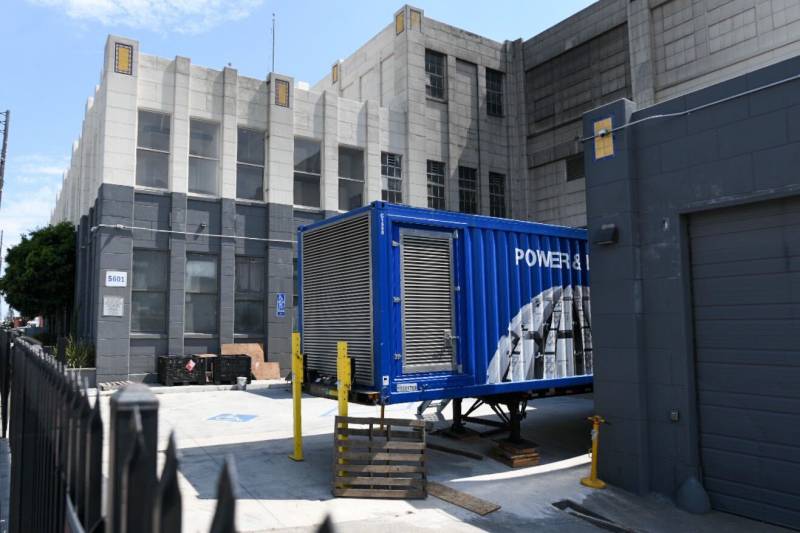The problem for Romspen, according to recent court filings (PDF), is that so far its attorneys have found it impossible to locate two of the three Green Sage partners to serve those documents.
The borrowers the attorneys are looking for are Kenneth E. “Kenny” Greer Jr. and Bruce D. Miller, who served as managing partners in the Green Sage enterprise.
“The defendants have seemingly disappeared overnight,” the attorneys said in a June filing (PDF) that asked a judge to allow the lender to serve Greer and Miller by publishing notices in newspapers in the locales where they are believed to be living. A hearing on the lender’s motion is set to be held on Monday.
The filing said process servers and a private investigator had made at least 23 attempts to find the men.
They were unsuccessful in locating Miller at addresses linked to him in Colorado, Wyoming and Montana. Efforts to find Greer at two addresses in Colorado and a third in Southern California also failed.
The Romspen documents say that in late May, Orange County private investigator William J. Murdoch attempted to track down Greer, who is believed to have an address in San Diego’s La Jolla Shores neighborhood.
In a court declaration (PDF) in June, Murdoch described calling Greer to try to arrange a meeting to serve the Romspen complaint.
“When Mr. Greer answered that May 22 phone call, I stated, ‘Hi, is this Kenny?’ to which Mr. Greer said ‘Yes.’ I then introduced myself as a licensed private investigator in possession of legal documents that I needed to serve on Mr. Greer. Mr. Greer then interrupted me, said, ‘I’m sorry,’ and promptly disconnected the call.
“I followed up the May 22 phone call by sending a text message that same day to the same phone number identified as Mr. Greer’s personal cell phone stating: ‘Just hear me out, please. We can meet at a coffee shop of your choice in La Jolla. I’m trying to be discrete.’ [sic] As of the date of this motion, Mr. Greer never responded to my text message.”
Romspen’s lawyers confirmed last week they still have not been able to locate Greer and Miller. Greer did not respond to an emailed request for comment on the Romspen allegations. Contact information for Miller was unavailable.
Process servers apparently had no trouble serving the third Green Sage partner, Patrick J. Koentges, a general contractor in suburban Denver. He was located and served soon after the case was filed in March.
All three Green Sage partners signed guarantees for the $54.5 million loan Romspen granted in August 2019 — cash that was intended to pay off earlier loans and help build out a pair of nearly century-old East Oakland warehouses the company was already describing on its website as “state-of-the-art” cannabis facilities.
Green Sage spent about $20 million raised from investors to buy the properties on San Leandro Street in East Oakland in 2016 and 2017. The company’s plan was to turn them into a major cannabis production, processing and distribution center.
The project would involve retrofitting the early-20th-century buildings for power-intensive indoor pot cultivation, then leasing space to entrepreneurs eager to get into the newly legal California cannabis market.
The plan soon ran into obstacles.
The biggest of those was the fact the two buildings didn’t have sufficient electrical supply to power the planned cannabis grows. As operations expanded at the properties, the existing transformers failed.
To keep the grow lights on, Green Sage began installing semi-trailer-sized diesel generators without obtaining the needed permits from the city or the Bay Area Air Quality Management District. The air district ordered the generators shut down at about the same time Oakland’s Environmental Democracy Project won a federal Clean Air Act injunction against Green Sage.
The company has faced other legal troubles as well.
Between January 2018, when the Green Sage project was just getting started, and the end of June 2023, the company, its officers and related companies were sued at least 32 times. Two dozen of those actions — from contractors, suppliers, tenants, a law firm that represented the company in one case, an Oakland community environmental group and the air district, among others — were filed in Alameda County Superior Court. The company has also faced suits filed in Colorado, Nevada, Virginia and South Carolina.
The most recent suit (PDF) was filed in June in Denver by United Rentals, one of the companies that leased diesel generators to Green Sage. The firm is seeking $1.75 million in rental charges it says Green Sage failed to pay.
Although Romspen’s efforts have failed to find Greer, he has recently resurfaced — online, at least — as the managing partner of a new venture. Colorado Secretary of State records show that he registered a firm called Cresswell Capital LLC on July 31.
On his LinkedIn page, Greer explains that Cresswell’s goal is “to acquire one exceptional company. We provide an opportunity for an owner to secure a meaningful exit, while entrusting their life’s work to a partner who will respect and preserve their legacy.”
